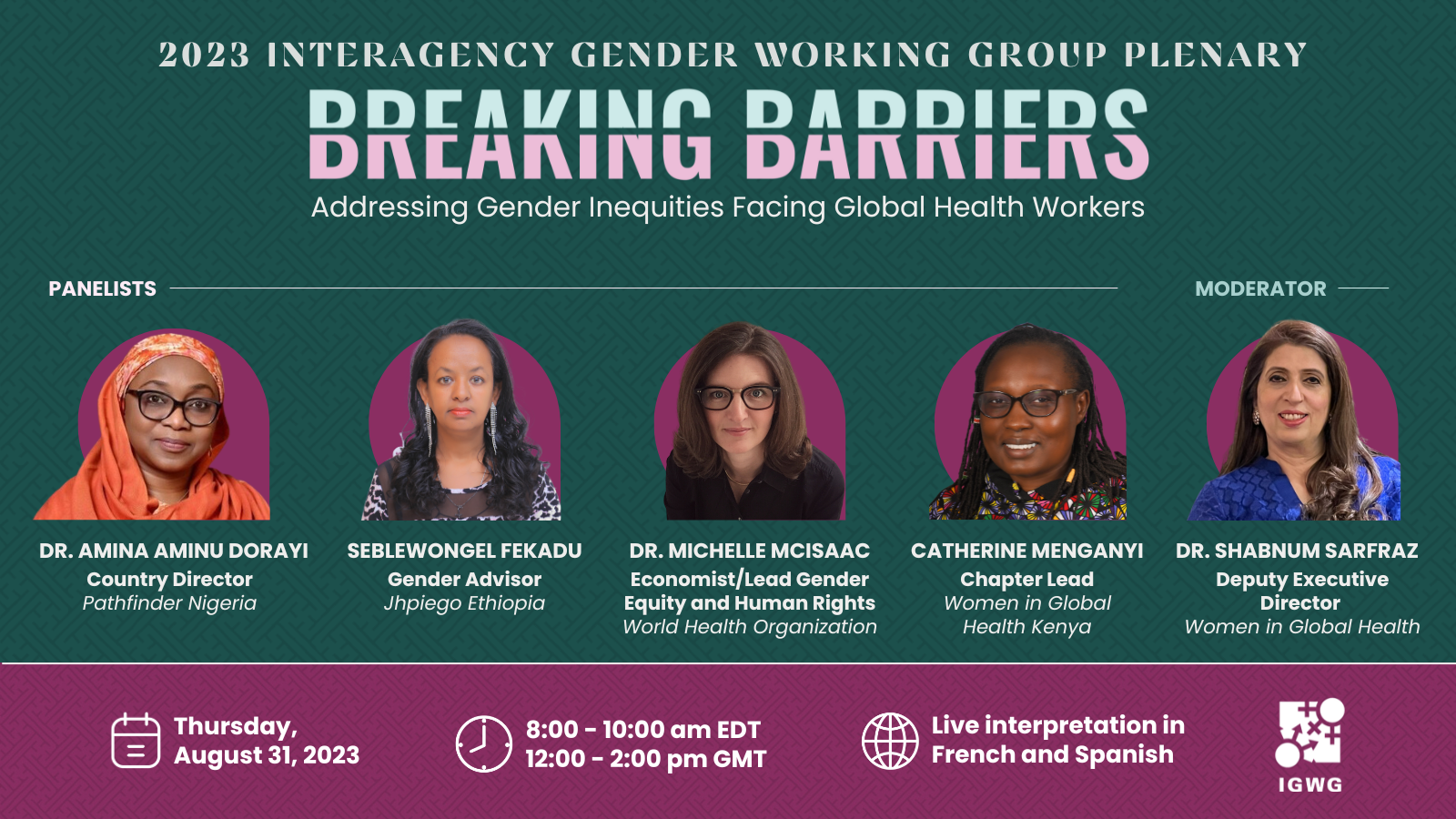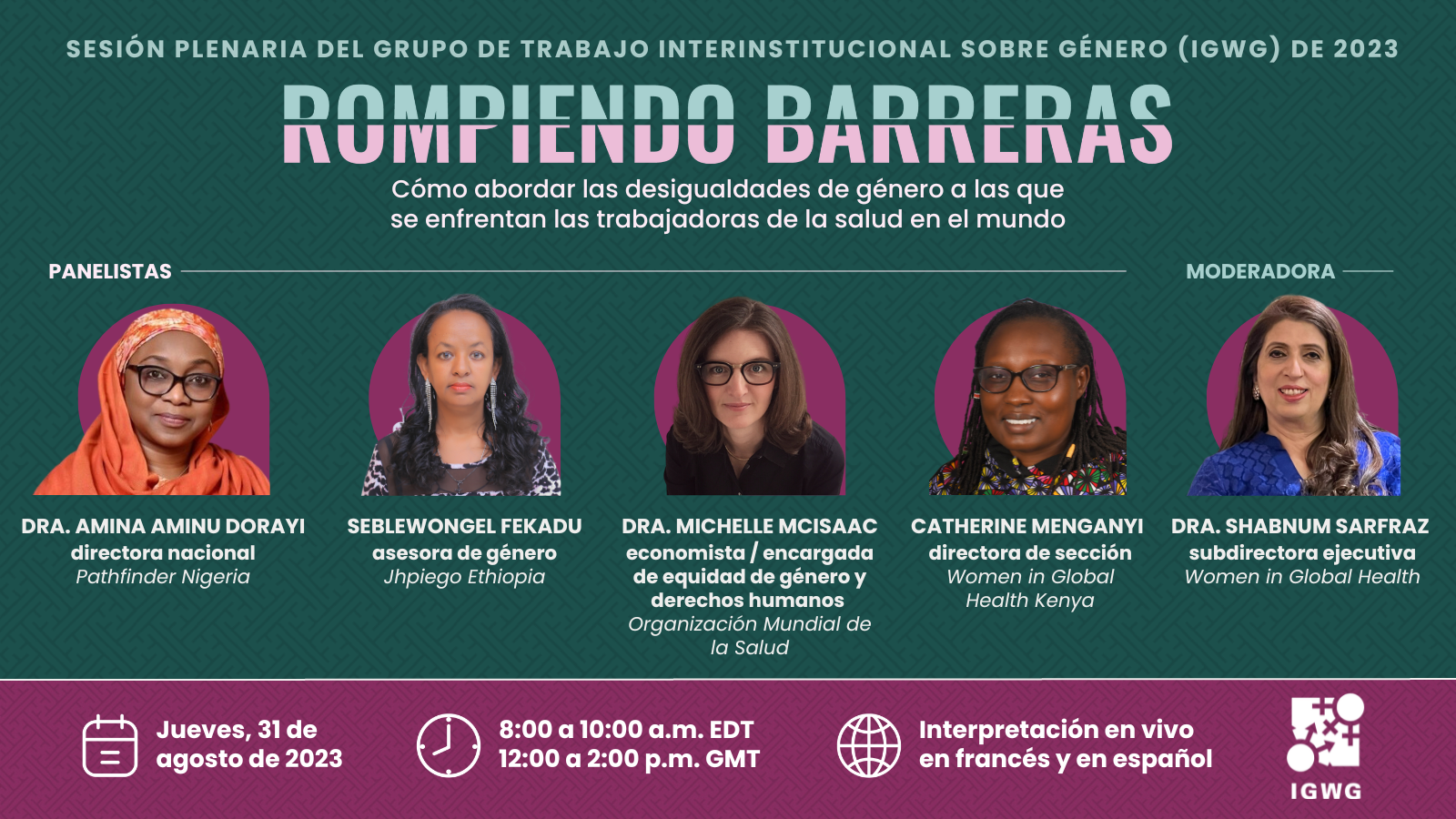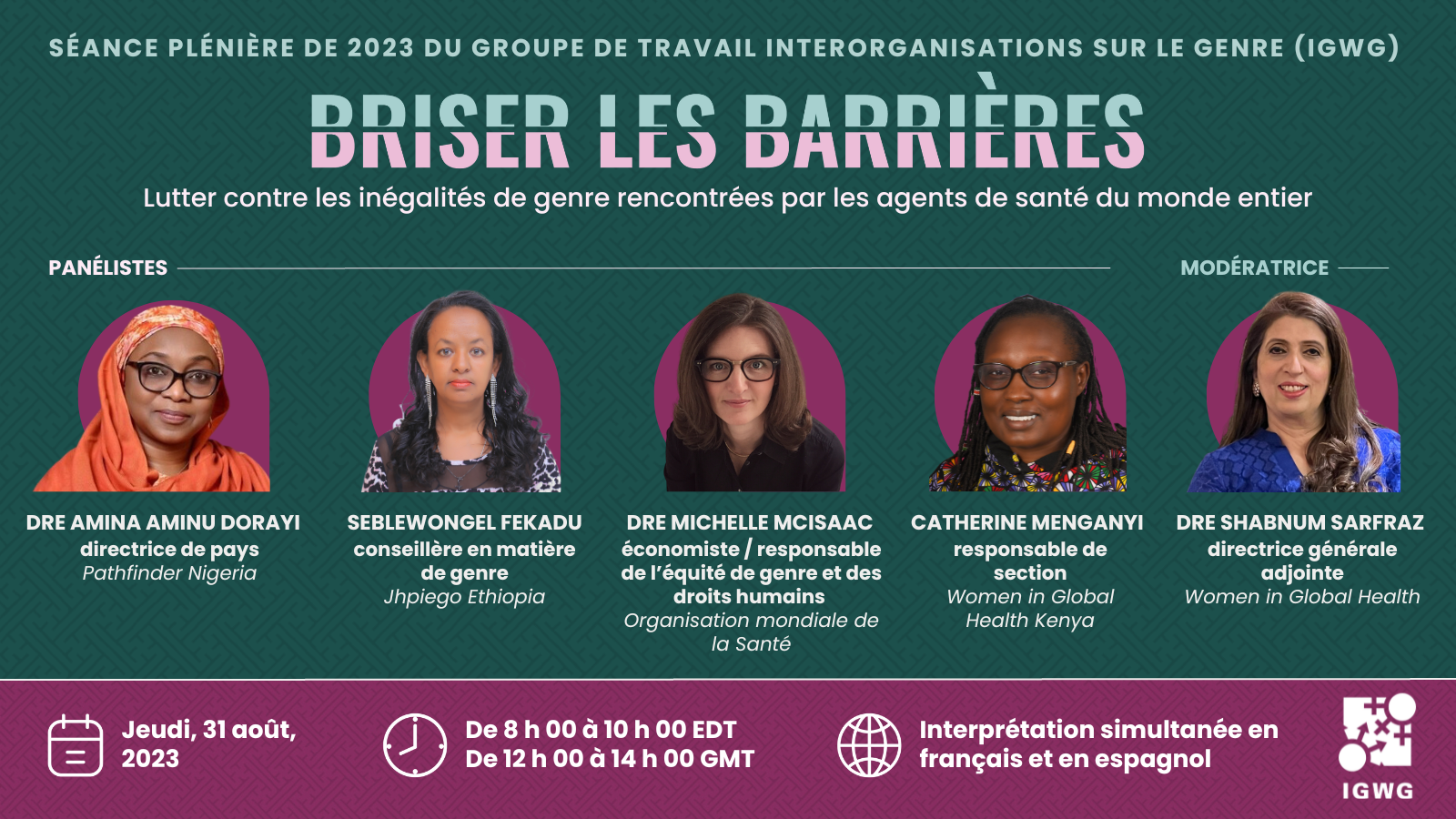View event overview, slides, and graphics here.
Access the 2023 IGWG Plenary Member Reflections Web Feature here.
Read the 2023 IGWG Plenary brief here.

Véase el gráfico en español más abajo.
Voir le graphique français ci-dessous.
Why:
- Learn about the gender inequity barriers health workers are facing in the workplace, including sexual harassment, discrimination, pay gaps, and inadequate workplace policies.
- Understand opportunities for addressing gender barriers to promote a more equitable and inclusive workplace for health workers.
- Explore promising practices and lessons learned from innovative program interventions addressing gender barriers in workplaces throughout the health system.
The Interagency Gender Working Group (IGWG) invites you to its 2023 Annual Plenary on Thursday, August 31 from 8:00-10:00 a.m. EDT, which will explore how gender transformative programs can better address workplace inequities affecting health workers, and improve health and gender outcomes.
Gender inequities affect health workers in many ways. Gender inequities are common in health care system practices related to recruitment, retention, promotion pathways, leadership roles, earnings, and even access to full-time employment. Women represent about 70% of the health workforce but earn on average 28% less than men. Gender discrimination also affects health system leadership, governance, and occupational segregation. Women remain least represented in decision-making roles, including as physicians, administrators, and managers. Sexual and gender-based harassment, objectification, mistreatment, and violence are commonly reported by health workers around the world. Additionally, few policies and practices recognize and support the informal care that health workers, predominantly women, are expected to provide at home.
Despite evidence that gender discrimination and inequities in the health workplace are systemic, programmatic attention and funding to address these inequities are limited. However, evidence from other sectors indicates that addressing these inequities could lead to a more sustainable health system that can better address gender inequalities as a social determinant of health, and, ultimately, improve health outcomes for all.
The 2023 Plenary will highlight research that examines gender inequities faced by health workers and showcase promising practices and lessons learned from innovative programs working to address gender barriers in the health system workplace. The 2023 IGWG Plenary aims to better equip IGWG members to examine gender inequity in their own organizations and to promote more equitable and inclusive workplaces—both within and outside the health system.
The virtual event will begin with a panel discussion led by experts and representatives of dynamic gender transformative programs addressing gender inequity in the health workforce.
Panelists will include:
- Dr. Amina Aminu Dorayi, Country Director, Pathfinder Nigeria
- Seblewongel Fekadu, Gender Advisor, Jhpiego Ethiopia
- Dr. Michelle McIsaac, Economist / Lead Gender Equity and Human Rights, Health Workforce Department, World Health Organization
- Catherine Menganyi, Chapter Lead, Women in Global Health Kenya
- Dr. Shabnum Sarfraz (moderator), Deputy Executive Director, Women in Global Health
Following the panel discussion, participants will join breakout rooms and share their personal experiences addressing health workplace inequities, including challenges encountered in their work and advocacy efforts.
We look forward to seeing you there!





